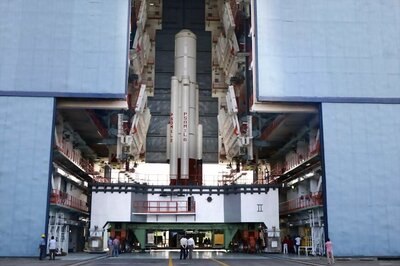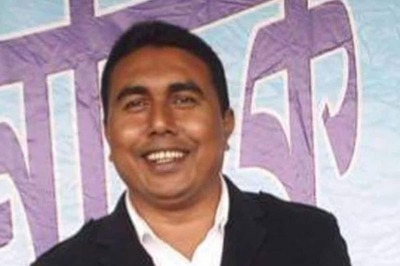
views
Jahannesburg: South Africa celebrated Nelson Mandela's 93rd birthday on Monday with songs by millions of children and calls for public service, but the nation he led out of apartheid is divided by poverty and his ANC movement seems to many to be losing its moral compass.
A frail but still active Mandela, who survived a health scare earlier this year, spent his birthday with family near his rural boyhood home in Qunu.
Mandela, who won a Nobel Peace Prize for helping end white-minority rule, served as president from 1994-1999, leaving behind an economically robust state that became a global beacon of hope for those seeking to end unjust rule.
But in recent months, questions have been raised about whether the African National Congress has veered from his legacy by a top figure in the party, a prominent ANC ally and masses of poor who have seen little improvement in their economic plight.
"Mandela represents a tradition of African politics, both individually in his exercise of morality, politics and rights, and he also represents a traditional that once was exemplified by the ANC," said independent political analyst Nic Borain.
"We are off track in a lot of ways."
Mandela's calls for greater access to the economy for the poor black majority have been dealt blows by corruption eating into welfare programmes and entitlements that benefit a sliver of the black elite with close ties to the ANC.
The non-racial ANC Mandela espoused was jolted when Julius Malema, the current leader of the ANC Youth League -- founded by Mandela in 1944 -- told a political rally in May that whites did not belong in the movement. Current President Jacob Zuma spoke at the same rally and did not bother to offer a rebuke.
Political analysts say there appears to be an increasing divide between ANC veterans of the anti-apartheid struggle who favour unity, social justice and reconciliation and younger members who care more about economic advancement.
The ANC's long time ally labour federation COSATU, blames parts of the latter group for rigging the system to benefit a politically connected class it calls "the predatory elite."
Critics charge that elements in the ANC place themselves above the poor they are supposed to serve, diverting state funds into their pockets and providing little to the public in return.
After Mandela
Since Mandela left office, South Africa has shown little improvement or slipped in areas that have been the top priorities of the ANC.
Education has represented the largest segment of state spending for years, accounting for about 20 percent of the budget, but there has been little to show for all the money.
South Africa ranked 130 out of 139 countries in the 2010 World Economic Forum's Global Competitiveness Report.
When Mandela left office, nearly 75 percent of South Africans said the government was doing a good job in providing service. That figure is now at about 55 percent, according to a government survey.
When he left office, life expectancy in South Africa was 55.8 years. Now it is 51.6. The poverty rate has been stuck at around 50 percent and unemployment at about 25 percent.
Violent protests by poor blacks angered by the slow pace of government delivery on running water, electricity and basic schools went from two in 2006 to a record 111 in 2010, research group Municipal IQ said.
"The ANC is a ghost of its former self and its rhetoric of 'intensifying the fight against crime and corruption' rings hollow," prominent human rights activist Rhoda Kadalie wrote in a recent opinion article for financial daily Business Day.
ANC officials have said there are no easy cures and undoing the injustice of apartheid will take a long time. An ANC veteran who was a political prisoner with Mandela said the ruling party still maintains the high ground.
"The moral path is the same. People do make mistakes and we try to correct them," said Andrew Mlangeni.
"We still need him, he is an icon not only of South Africa but the entire world," he said.



















Comments
0 comment